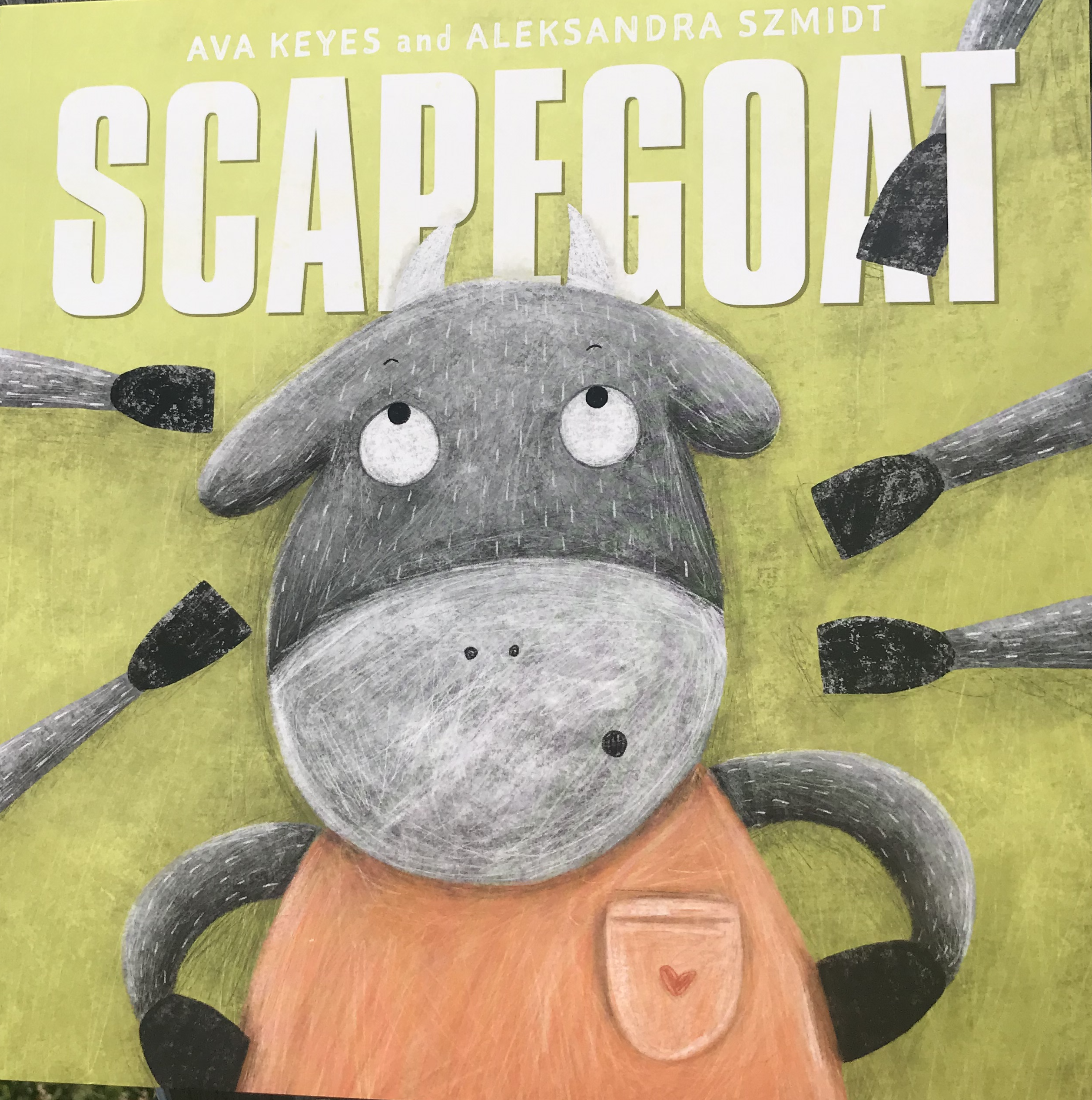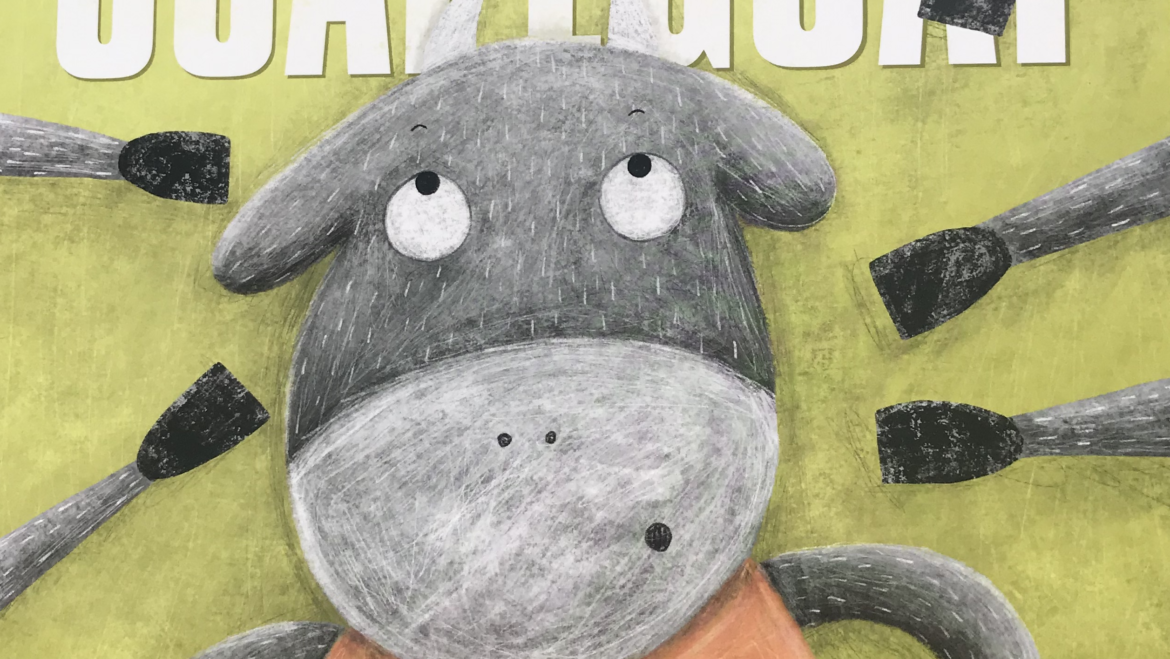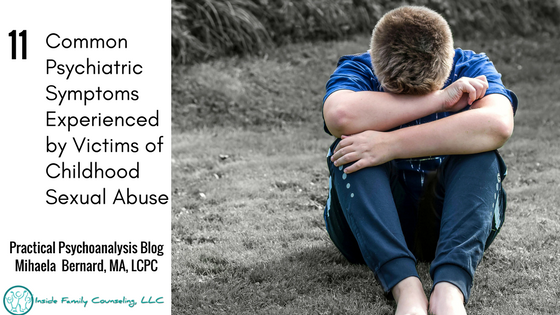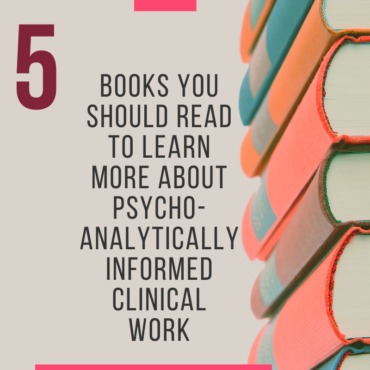I recently wrote a blog post for my Practical Psychoanalysis Blog at PsychCentral about a rare form of child abuse, called Munchausen’s Syndrome, that is depicted in the HBO Murder Mystery Series “Sharp Objects.”(Munchausen’s Syndrome by Proxy, Loss and Self Injury in the HBO Series “Sharp Objects”). The series are based on a book, written by the New York Time’s Best Selling author Gillian Flynn, familiar to readers through her other book and motion picture, “Gone Girl.”
One of the blog readers, Ava, sent me a private note about it, sharing some of her personal experiences with what she called a “narcissistic” and abusive mother growing up. Ava shared with me that she wrote a children’s book based on her own life experiences, named “Scapegoat,” in an effort to provide education and hope for kids and families, who may be going through a similar struggle themselves. I asked her to do a short interview for the audience of Inside Family Counseling and Mental Health Digest and she agreed.
“What gave you the idea to write a book about scapegoating in families?
When I look back, my whole life experience of family, education and work compelled me to write this book to advocate for the child who is the family scapegoat.
The book doesn’t come from a place of peace; it came from a necessity, an urgent need to create a tool, for education and early-in-life intervention, of a very real and serious problem, that requires public as well as private solutions.
Intergenerational family violence, family scapegoating and trauma are connected to health and well-being. Human wellness requires more people recognise and help families “unlearn” this pattern.
How did you decide on the term scapegoating?
There was information written online about this family Scapegoating dynamic. In Psychology they call it the Identified Patient. Other people say Black Sheep or Whipping Boy. I thought the term scapegoating gave an opportunity to create a goat character. Animals in children’s books help make a complex, invisible problem easier to understand. A goat family can act as a mirror, reflecting the reader’s own experiences and fears, giving them a tool, a frame of reference, to help make sense of the world they inhabit.
Tells us about the process of writing a children’s book. What is your advice for future authors?
If you need a book and can’t find it, perhaps consider writing it, as it might be needed by someone else too. I imagined the pictures of the book first. I bought a little set of toy goats and photographed them in scenes. I wrote the words around those photos. I had help from a poet and mentor, friends and a writing group. Writing the ending was challenging, it needed to be hopeful, but that is not always a realistic outcome, for family scapegoat Children.
If you have an idea for a book and it is an unpopular truth, the art of survival kicks in, and the story almost writes itself.
What is your advice to parents?
If a parent is perhaps aware that their child is being bullied by their partner, it is important to seek advice how to speak up and protect themselves and that child. Find an empathetic professional person who is aware of the scapegoating dynamic and family bullying behaviour. Don’t feel embarrassed, that you have allowed this, take action now, put the enabling, bystander behaviour behind you. Prioritise your right to have a respectful relationship, and prioritise your children’s rights to safety and well-being. I understand it is difficult to find professionals who understand this particular dynamic.
If you are the bully parent, seek help, this is wrong and you need professional support yourself. It could be intergenerational and you might need assistance to unlearn this pattern. Family scapegoating is like an addiction and not easy to stop. The whole family unit might need to go into family therapy to learn how to stop blaming and shaming the child. There are resources specific to learning how to care for children with empathy and respect. Seeking this help could be a wonderful outcome for you and your family.
If you are a parent, who scapegoated your own child, who is now an adult, it is important to restore trust. Take responsibility, validate the past, and make efforts to develop your behaviour so you can show consistent respect towards your adult scapegoat child. Actively make consistent efforts to Communicate honestly, ask what you can do to make up for the damage. Treat the scapegoat with respect and equal to the other favourite siblings or people you idealise.
If you could go back to your childhood, what would have been helpful to you to address some of your family struggles?
Education about family bullying, how to talk about passive aggressive, toxic behaviour and inconsistent behaviour by a parent. Education about families and how healthy families really do differ. Education about how a caring and loving parent, can also be cruel and scary. Self protection strategies.
I needed someone, an adult to be brave and talk about the dysfunctional family dynamics. The whole family and extended village, seemed desensitised, fractured, paralysed and not able to talk, trust or feel. This is detrimental for the whole group, as no one shows up for, or speaks up to support, each other when it is really needed.
Government, education, and medical services need skills to be able to ask the right questions, to give a frame to understand, recognise family scapegoating behaviour. Then action services and help for the scapegoat children and their families. To undo the family scapegoating system would have helped me.”
If you or someone you know is experiencing scapegoating at home, do not hesitate to speak up and ask for help. Ava’s book addresses the issue of scapegoating in a child-friendly way and leaves the reader hopeful that speaking up to a trusted adult can help solve a hurtful problem at home.
About the Author
Ava Keyes has a Bachelor of Arts in Sociology. Her debut picture book, ‘Scapegoat’, aims to provide a valuable resource for
children experiencing a specific kind of family bullying – family scapegoating.
Ava is thrilled to have partnered with Little Steps Publishing in this important journey of self-discovery and hopes that this
book will empower children and their families with hope, courage and positive communication.








